Filter by

The Quantum Dissidents
This book tells the fascinating story of the people and events behind the turbulent changes in attitudes to quantum theory in the second half of the 20th century. The huge success of quantum mechanics as a predictive theory has been accompanied, from the very beginning, by doubts and controversy about its foundations and interpretation. This book looks in detail at how research on foundations e…
- Edition
- -
- ISBN/ISSN
- 978-3-662-44662-1
- Collation
- XVI, 356
- Series Title
- -
- Call Number
- -
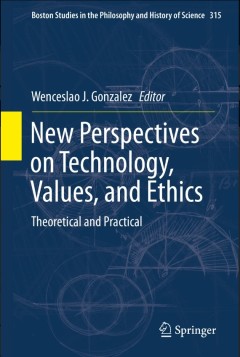
New Perspectives on Technology, Values, and Ethics
This book focuses on a key issue today: the role of values in technology, with special emphasis on ethical values. This topic involves the analysis of internal values in technology (as they affect objectives, processes, and outcomes) and the study of external values in technology (social, cultural, economic, ecological, etc.). These values — internal and external — are crucial to the decisi…
- Edition
- 1
- ISBN/ISSN
- 0068-0346
- Collation
- XIV, 219
- Series Title
- Boston Studies in the Philosophy and History of Science
- Call Number
- -
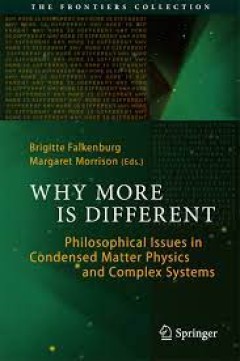
Why More Is Different Philosophical Issues in Condensed Matter Physics and C…
The physics of condensed matter, in contrast to quantum physics or cosmology, is not traditionally associated with deep philosophical questions. However, as science - largely thanks to more powerful computers - becomes capable of analysing and modelling ever more complex many-body systems, basic questions of philosophical relevance arise. Questions about the emergence of structure, the nature o…
- Edition
- -
- ISBN/ISSN
- 978-3-662-43911-1
- Collation
- X, 280
- Series Title
- -
- Call Number
- -

The Electric Theories of J. Clerk Maxwell
Furthermore, Duhem felt, in criticizing such a theory one must guard against narrowness of mind and petty corrections which would make one forget the merit of the inventor; and, more importantly, one must guard against the blind superstition which, for admiration of the author, would hide the serious defects of the work. He is not so great a genius that he surpasses the laws of reason. Pierr…
- Edition
- -
- ISBN/ISSN
- 978-3-319-18515-6
- Collation
- XV, 185
- Series Title
- Boston Studies in the Philosophy and History of Science
- Call Number
- -
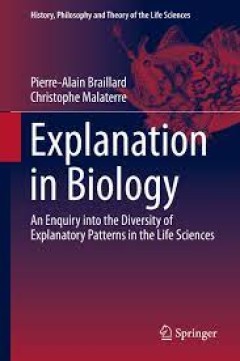
Explanation in Biology
Patterns of explanation in biology have long been recognized as different from those deployed in other scientific disciplines, especially that of physics. Celebrating the diversity of interpretative models found in biology, this volume details their varying types as well as explaining their relationships to one another. It covers the key differentials with other sciences in the nature of explan…
- Edition
- -
- ISBN/ISSN
- 978-94-017-9822-8
- Collation
- 52 b/w illustrations
- Series Title
- -
- Call Number
- -
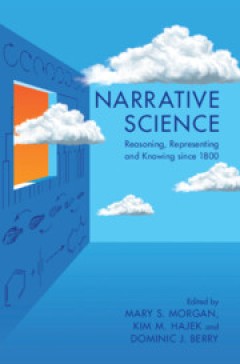
Narrative Science Reasoning, Representing and Knowing since 1800
Narrative Science examines the use of narrative in scientific research over the last two centuries. It brings together an international group of scholars who have engaged in intense collaboration to find and develop crucial cases of narrative in science. Motivated and coordinated by the Narrative Science
- Edition
- -
- ISBN/ISSN
- 9781009004329
- Collation
- -
- Series Title
- -
- Call Number
- T 501 MOR n
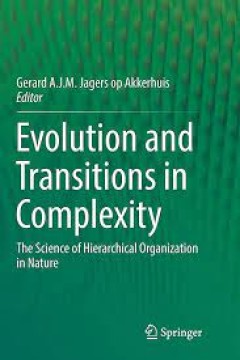
Evolution and Transitions in Complexity The Science of Hierarchical Organiza…
This book discusses several recent theoretic advancements in interdisciplinary and transdisciplinary integration in the field of evolution. While exploring novel views, the text maintains a close link with one of the most broadly held views on evolution, namely that of “Darwinian evolution.” This work puts forth a new point of view which allows researchers to define in detail the concep…
- Edition
- -
- ISBN/ISSN
- 978-3-319-43802-3
- Collation
- 25 b/w illustrations, 3 illustrations in colour
- Series Title
- -
- Call Number
- -
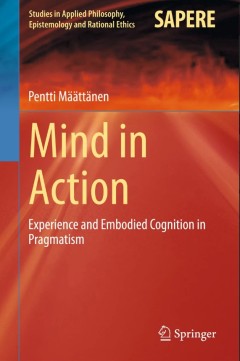
Mind in Action
The book questions two key dichotomies: that of the apparent and real, and that of the internal and external. This leads to revised notions of the structure of experience and the object of knowledge. Our world is experienced as possibilities of action, and to know is to know what to do. A further consequence is that the mind is best considered as a property of organisms’ interactions with the…
- Edition
- 1
- ISBN/ISSN
- 978-3-319-17622-2
- Collation
- XII, 94
- Series Title
- Studies in Applied Philosophy, Epistemology and Rational Ethics
- Call Number
- -
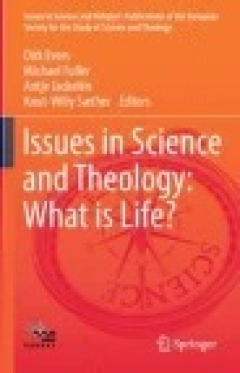
Issues in Science and Theology: What is Life?
This book explores the concept of Life from a range of perspectives. Divided into three parts, it first examines the concept of Life from physics to biology. It then presents insights on the concept from the perspectives of philosophy, theology, and ethics. The book concludes with chapters on the hermeneutics of Life, and pays special attention to the Biosemiotics approach to the concept. The q…
- Edition
- -
- ISBN/ISSN
- 978-3-319-17407-5
- Collation
- -
- Series Title
- -
- Call Number
- -
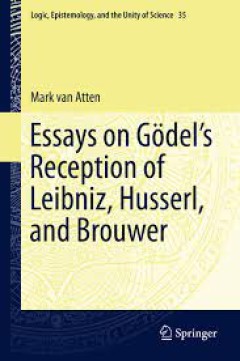
Essays on Gödel’s Reception of Leibniz, Husserl, and Brouwer
This volume tackles Gödel's two-stage project of first using Husserl's transcendental phenomenology to reconstruct and develop Leibniz' monadology, and then founding classical mathematics on the metaphysics thus obtained. The author analyses the historical and systematic aspects of that project, and then evaluates it, with an emphasis on the second stage. The book is organised around Gödel…
- Edition
- -
- ISBN/ISSN
- 978-3-319-10031-9
- Collation
- XIV, 328
- Series Title
- -
- Call Number
- -
 Computer Science, Information & General Works
Computer Science, Information & General Works  Philosophy & Psychology
Philosophy & Psychology  Religion
Religion  Social Sciences
Social Sciences  Language
Language  Pure Science
Pure Science  Applied Sciences
Applied Sciences  Art & Recreation
Art & Recreation  Literature
Literature  History & Geography
History & Geography